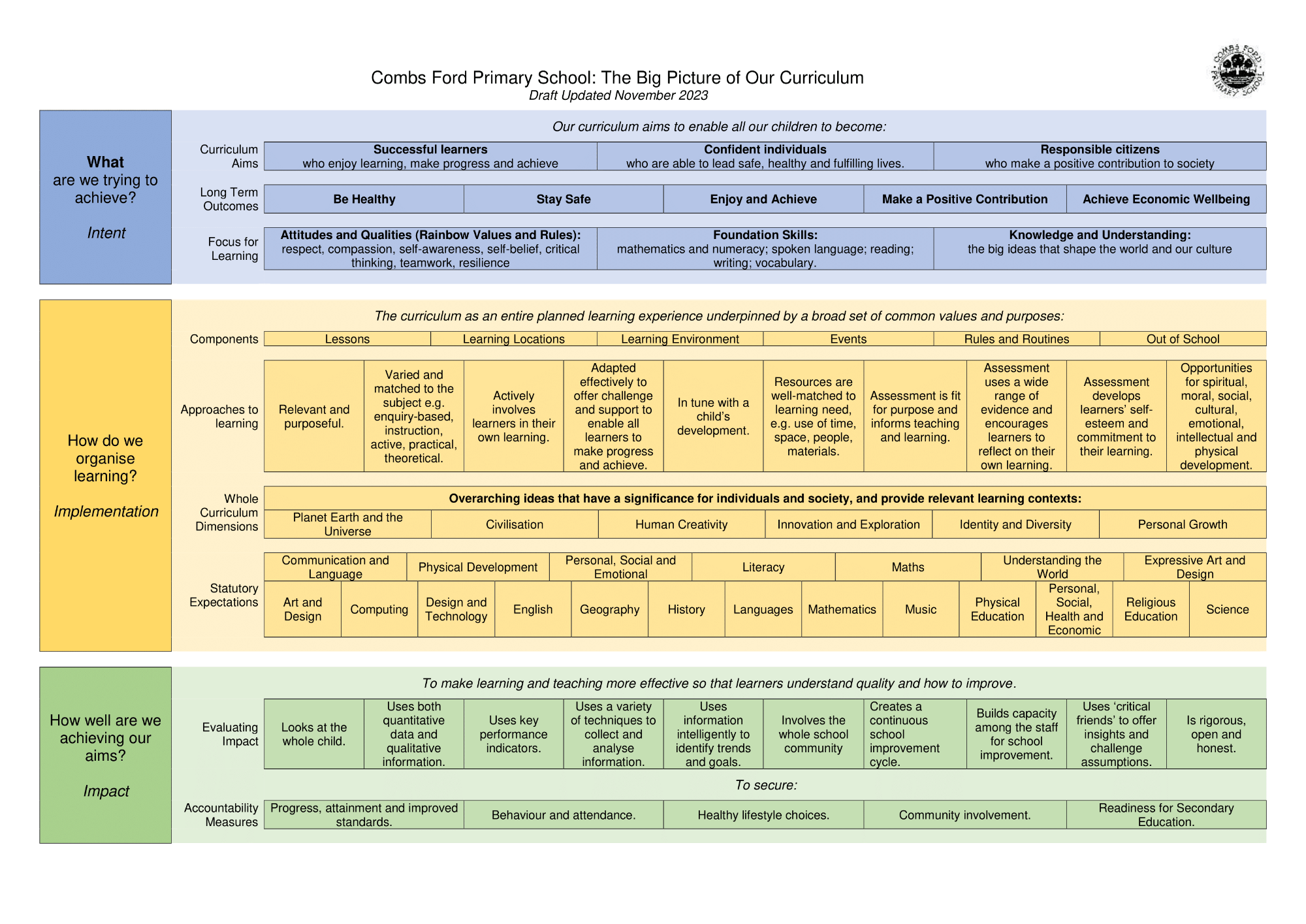Curriculum
At Combs Ford Primary School we aim for a modern and world-class curriculum rooted in our local community that inspires and challenges all of our children and prepares them for the future. This is a future that we cannot predict and our curriculum needs to reflect this – engaging curiosity, individuality and creativity; nurturing children as individuals; and creating conditions in which children flourish through encouraging the celebration of their talents.
The Big Picture of Our Curriculum recognises that children learn not just in lessons, but also through the routines of the school, the events that we organise and the out-of-hours learning opportunities that we provide.
The Big Picture of Our Curriculum is built around three questions:
- What are we trying to achieve?
- How do we organise learning?
- How well are we achieving our aims?

 1. What are we trying to achieve?
1. What are we trying to achieve?
A Combs Ford education is broader than just an academic education and this is captured in our curriculum aims, our long-term outcomes and our focus for learning. Our driving question is, “Will this set of learning experiences enable our children to meet the goals we set?”
Our curriculum aim is to enable all our children to become:
- Successful learners who enjoy learning, make progress and achieve.
- Confident individuals who are able to lead safe, healthy and fulfilling lives.
- Responsible citizens who make a positive contribution to society.
Our five long-term outcomes for our children are:
- Being Healthy: enjoying good physical and mental health and living a healthy lifestyle.
- Staying Safe: being protected from harm and neglect.
- Enjoying and Achieving: getting the most out of life and developing skills for adulthood.
- Making a Positive Contribution: being involved with the community and society and not engaging in anti-social or offending behaviour.
- Economic Wellbeing: not being prevented by economic disadvantage from achieving their full potential in life.
The attitudes and attributes (Rainbow Values and Rules) we nurture in our children are:
- Respect: I speak and act kindly towards others.
- Compassion: I understand how others feel.
- Self-Awareness: I understand how I feel and how I make others feel.
- Self-Belief: I believe that I can be the best I can be.
- Critical Thinking: I solve problems and make good choices.
- Teamwork: I work well with other people.
- Resilience: I don’t give up when things get difficult.
The foundations skills – the skills our children need to access learning at any stage – we develop are:
- mathematics and numeracy;
- spoken language;
- reading;
- writing;
- vocabulary.
Our curriculum is driven by key knowledge and understanding about the big ideas that shape the world and our culture (laid out in part by the EYFS Framework and the National Curriculum).
2. How do we organise learning?
The Big Picture of Our Curriculum recognises that pupils do not just learn within lessons but through many different activities both within and outside the normal school day. The statutory expectations for the Early Years and Foundation Stage (EYFS) and the National Curriculum subjects are an important part of this, but so are our rules and routines, educational visits, visitors to school, assemblies and extra-curricular activities. Our ‘Six Big Ideas’ that shape our world and our culture (Planet Earth and the Universe; Civilisation; Human Creativity; Innovation and Exploration; Identity and Diversity; Personal Growth) are designed to help our children make sense of a complicated world.
You can see how subject are organised over a school week on the Timetables page.
3. How well are we achieving our aims?
Learning is a change in long term memory. We know that children have made progress because they know more, remember more and are able to do more of our aims.
To determine how well we are achieving our aims we use a wide range of methods of capturing success so we can measure:
- Progress, attainment and improved standards.
- Behaviour and attendance.
- Healthy lifestyle choices.
- Community involvement.
- Readiness for Secondary Education.
An Evolving Curriculum
The Big Picture of Our Curriculum is constantly evolving as we learn from evaluating its impact and from education research. There are always aspects of our curriculum that are under review and that we are refining for the benefit of our children.
You can find more information about each area of the curriculum on its page.
References
Department for Education. 2004. Every Child Matters. Department for Education.
Department for Education. 2021. Statutory Framework for the Early Years Foundation Stage. GOV.UK.
Department for Education. 2013. The National Curriculum. GOV.UK.
Ofsted. 2022. School Inspection Handbook. GOV.UK.
Waters, Mick. 2007. The Big Picture of the Curriculum. QCA.
Updated on 24/03/24 by JTT.
